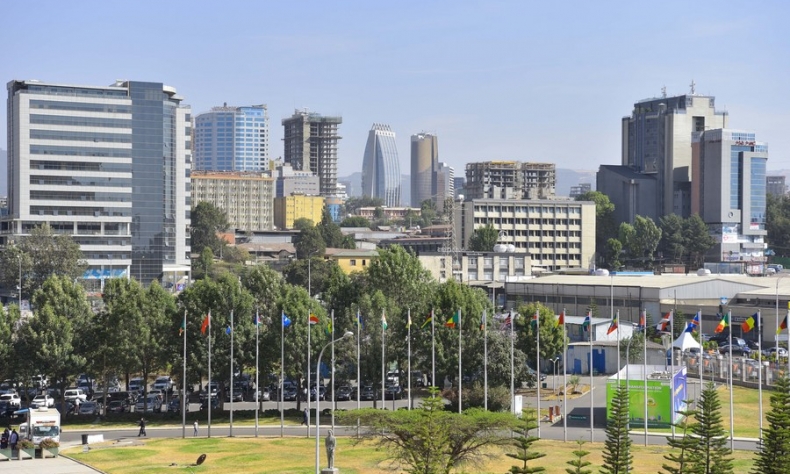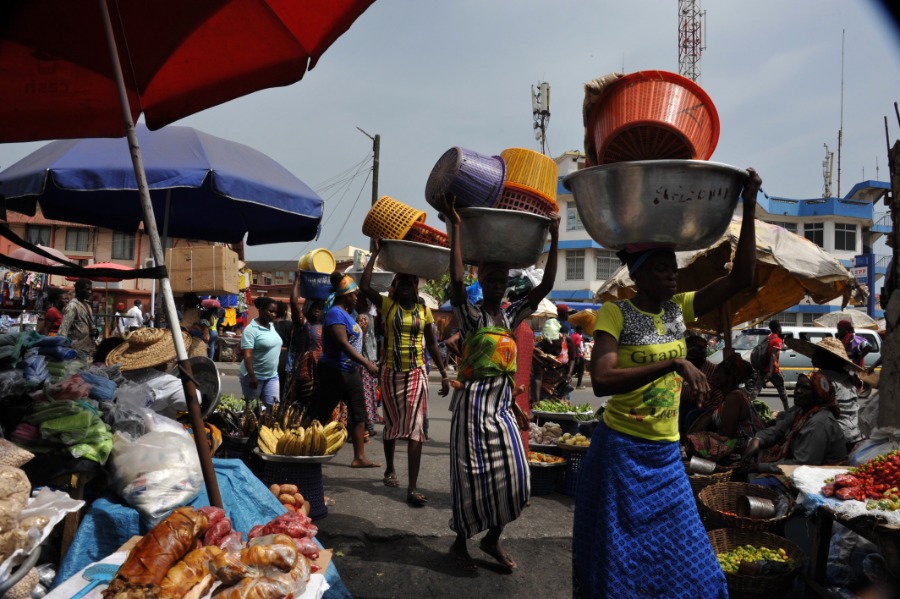Greater Voice for Global South

After becoming a G20 member, the AU will gain broad channels to coordinate financial and economic policies with the world’s major economies.
The African Union’s (AU) admission as a new G20 member is a diplomatic breakthrough and a major step towards a more balanced world order in favour of the developing nations. In September, the G20 Summit in Delhi, India, accepted the AU as its new member, giving the continent a greater voice in the global economic affairs.
This paved the way for AU Chairperson Azali Assoumani, also the president of the Comoros, to take a seat as a representative of the 55-member bloc. The move gave developing countries more representation in global economic forums and international governance systems.
Created in 1999, the G20 brings together the world’s major economies. It is the main platform for international cooperation in the areas of finance and economy. Until recently, the G20 comprised 19 countries and the European Union (EU). The AU was designated as an “invited international organisation.”
But the AU’s ascendancy was not smooth sailing. It followed months of pushing and lobbying by countries in the global South, led by China. Most developing countries and emerging markets feel the West has neglected and marginalised them for a long time. Moreover, they feel that the West, led by the US, has disregarded their views and concerns, and pushed them to the periphery of global economics.
Ahead of the summit, the Chinese government led the charge and called for the AU’s full membership. China championed the sentiments of the developing nations, which have been demanding justice and a seat at the G20 table. Africans also talked about the AU’s membership in the G20 on the sidelines of the Russia-Africa Summit in St. Petersburg.
Africa’s role in the world
The AU’s success is not an isolated incident, though. It is part of a concerted effort by the Global South to transform global governance systems such as the United Nations (UN), the UN Security Council, and the World Trade Organisation. The AU’s admission is also a success for China’s effort to give Africa more say in global and regional affairs.

It came a few weeks after China spearheaded the expansion of the BRICS grouping at a summit held in Johannesburg, South Africa, in August. BRICS leaders invited six regional powers to join the alliance from January 2024. This includes Ethiopia, Saudi Arabia, United Arab Emirates, Argentina, Egypt and Iran. These developments not only show China’s commitment to the development of Africa, but also to the nations in the global South.
Africa has suffered for decades from the exploitation of its natural resources by Western countries, especially the US, the UK and France, which treated the continent’s states as vassals and paid lip service to development assistance. Instead of support, the leaders of the US and the EU have been lecturing Africans for decades about human rights and the LGBT community, climate change and other liberal values.
And when the West did offer help, it did so by setting conditions for African countries on foreign policy and democracy, which on the continent was often perceived as interference in internal affairs. The imperialistic approaches of the West have deprived Africa of any tangible development. The result is widespread poverty, unemployment, lack of infrastructure and low life expectancy. African countries are the poorest in the world, despite the abundance of natural resources.
Despite these setbacks, Africa remains a continent with huge development potential. After becoming a G20 member, the AU will gain broad channels to coordinate financial and economic policies with the world’s major economies, thus helping African countries to improve their capacities in dealing with challenges brought by increasing debts, climate change, and food security.
The move will also help African countries to further increase cooperation with other countries, especially China and Russia. China and Africa are increasing cooperation on platforms such as the Belt and Road Initiative, the Forum on China-Africa Cooperation and the African Continental Free Trade Area. The G20 will be another platform for both sides to coordinate their policies and play greater roles in world affairs.
The author is Editor-in-Chief of African Times, Johannesburg, South Africa.
 Facebook
Facebook
 Twitter
Twitter
 Linkedin
Linkedin
 Google +
Google +










